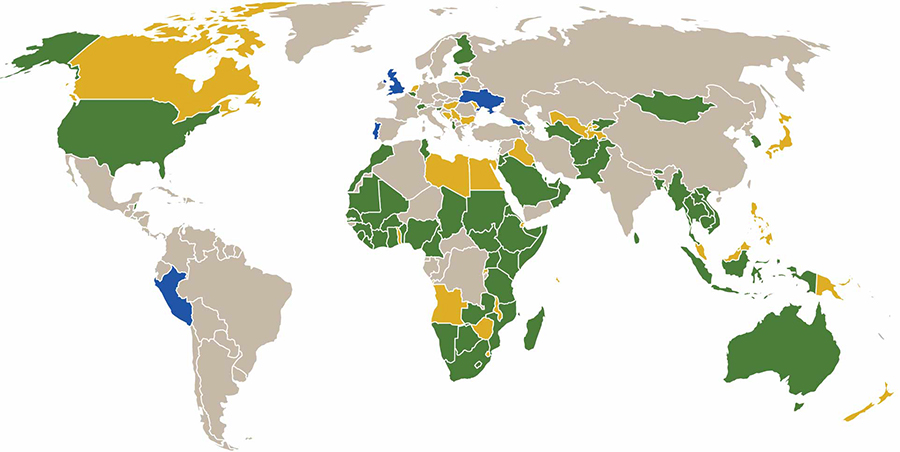Joint External Evaluations (JEE)
What are JEEs?
The World Health Organization’s (WHO) Joint External Evaluations (JEEs) are voluntary, external assessments of a country’s capacity to prevent, detect, and respond to infectious diseases and other public health threats. These were first piloted as GHSA Assessments in 2014. The JEE process brings together experts from around the world to help a country assess its strengths and weaknesses in health security and identify priority actions to improve its health capacity. Following a JEE, countries develop National Action Plans for Health Security (NAPHS) to identify the resources and actions needed to address the weaknesses. NAPHS outline a country’s own priorities for improving health systems over the next five years to reduce the likelihood of disease outbreaks that could spread within their borders and to other countries. Together, these systems protect Americans from dangerous disease threats before they reach U.S. shores.
How Does CDC Support JEEs?
CDC has played a critical role in ensuring the success of the JEE process by:
- Supporting global implementation. CDC worked with WHO to develop materials critical to implementing the JEE, including (1) training materials to prepare JEE evaluators and JEE team leads, (2) guidance for countries preparing for the JEE and for evaluators to successfully perform the assessments, and (3) tools that allow WHO to implement and oversee JEE implementation worldwide. These materials are used by WHO worldwide to ensure standardized assessments.
- Leveraging CDC’s world-class expertise. CDC supports JEEs through on-the-ground assistance from in-country staff and participation of CDC experts on JEE teams. CDC experts have participated as members of JEE teams in more than 75% of the 67 JEEs completed by the end of 2017.
- Building a better external evaluation process. CDC has improved the external evaluation process by contributing to the development of the original JEE and its training tools, as well as by incorporating lessons learned into the second version of the JEE tool. JEE 2.0 will be used for JEEs in 2018.
Global Health Security Agenda and Joint External Evaluation Assessments

World map depicting countries that have completed Joint External Evaluations, planned for Joint External Evaluations, or completed Global Health Security Agenda Assessments, shaded by category of each.

Joint External Evaluations Completed: n=67 (50 published)

Joint External Evaluations Planned: n=29

Global Health Security Agenda Assessments Completed: n=6
*Uganda has completed both a JEE and a GHSA Assessment
As of December 15, 2017